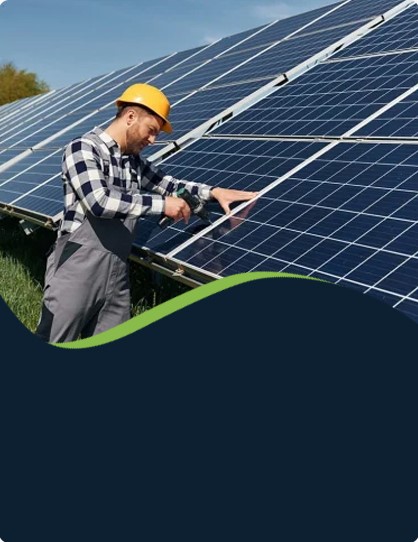
-
[email protected]

-
Building 1, No. 21 Shengfa Road, Lucheng District, Wenzhou, Zhejiang, China



The international energy sector is witnessing an exceptional surge in the integration of photovoltaic technology as nations increasingly turn to solar power to meet their electricity needs. This substantial growth in PV panel implementation represents a fundamental transformation in global energy infrastructure, highlighting the increasing importance of renewable resources in national energy strategies. The expanding utilization of PV panel systems demonstrates a collective commitment to developing sustainable energy solutions that can address contemporary power requirements while simultaneously reducing environmental impact.
Continuous technological innovation has significantly enhanced the performance characteristics of modern PV panels. Current manufacturing techniques have produced solar modules with remarkably improved conversion efficiencies, allowing for greater electricity generation from the same surface area. These advanced PV panels maintain higher performance levels across varying environmental conditions, including periods of limited sunlight and bad temperatures. The enhanced durability of contemporary PV panel designs ensures longer operational lifespans, providing more consistent energy production over time and improving the economic viability of solar investments. These technological improvements in PV panel construction have substantially increased their reliability and appeal to diverse user groups.
Economic factors have played a crucial role in driving PV panel adoption across multiple market segments. Manufacturing advancements and increased production scale have substantially reduced the cost of PV panel systems, making solar technology accessible to broader demographic groups. Supportive governmental policies and financial incentive programs in numerous countries have further accelerated PV panel installation rates. The developing network of certified installers and maintenance providers has created a robust infrastructure that supports the growing number of PV panel systems entering operation. This comprehensive ecosystem ensures that prospective users can readily access professional services for PV panel installation and maintenance.
Environmental considerations remain central to the ongoing development of PV panel technology. Manufacturers have implemented increasingly sustainable production methods that less the ecological impact of creating solar modules. The industry has established sophisticated recycling programs that responsibly manage PV panels reaching the end of their operational lifespan. These initiatives effectively recover valuable materials while preventing potential environmental contamination. The reduced carbon footprint associated with PV panel electricity generation represents a significant advantage over conventional power sources, contributing to international efforts addressing climate change concerns.
The application diversity of PV panel technology continues to expand beyond conventional installations. Agricultural enterprises increasingly implement agrivoltaic systems that combine crop production with electricity generation through strategically positioned PV panels. Urban development projects routinely incorporate building-integrated photovoltaics that serve as both functional construction elements and power generation assets. Transportation infrastructure now frequently features PV panel installations that provide renewable energy for various operational requirements. This broadening application spectrum demonstrates the remarkable adaptability of PV panel technology across different environments and usage scenarios.
The extensive implementation of PV panel technology reflects more than technical advancement—it represents a fundamental shift in energy production philosophy. This transition toward solar power through widespread PV panel adoption demonstrates growing recognition of renewable energy's critical role in establishing sustainable economic development patterns. The continuing expansion of PV panel installations worldwide indicates a collective commitment to creating more environmentally responsible energy systems that can serve present and future generations effectively while preserving planetary ecosystems.

Your email address will not be published. Required field are marked*
